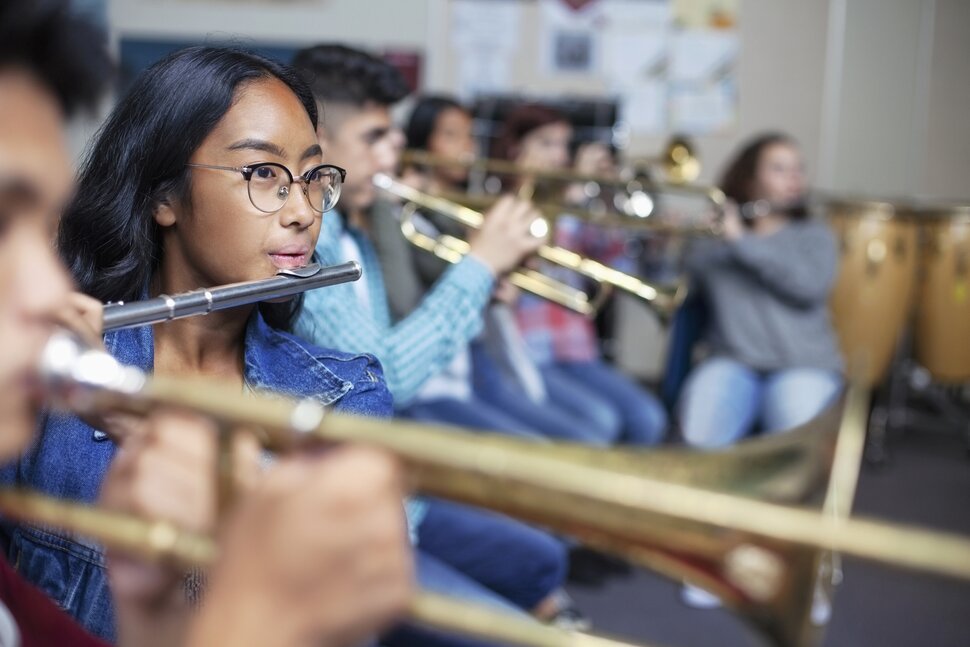First-year files: you get what you put in!
February 8th, 2023Going away to college is a big adjustment, especially for students who choose a college far from home. There will be many changes on the horizon: new landscapes, different accents, maybe even the weather. Chances are you will be meeting all new people, a chance to start fresh, with a clean slate to re-invent yourself. This will certainly require you to get out of your comfort zone if you want to make the most of this new life.

In today’s blog post, we return to our First-Year Files tradition with a Shrop Ed advisee who graduated from high school in central Kentucky and is now spreading her wings in New England. Ana Maria attends Boston College, a medium size Jesuit university with a beautiful and lively campus in a metropolitan area. Ana Maria’s reflections are helpful for students headed to colleges of all sizes, particularly medium and large colleges where taking initiative is more important. We’re grateful to her for sharing thoughts about academics and social life, difficulties as well as successes, and wish her a wonderful undergraduate career at BC.
In terms of my experience as a first year student, it’s definitely had its ups and downs. It was a bit hard at first to make friends, get adjusted to classes, and feel comfortable in a new environment. One thing I think went well was I was not afraid to reach out to everyone that I could. Even though I got some rejections, it proved a good way to make new friends. Whether it was for dinner at a dining hall, a brief trip into a city, or a simple walk around campus, I made it a point to reach out to anyone that I thought seemed like a good potential friend. Slowly, I started to figure out who I clicked well with and could spend extended amounts of time with. It was trial and error but I ended up settling into a great group of friends. Additionally, I organized my schedule very well and recorded every assignment and exam in my planner. That helped me not be overwhelmed as well as keep on top of all my work. Also, I found that professors were very understanding and offered lots of review sessions, extra help, and were useful resources for succeeding in their class. Finally, I found that the clubs I joined helped me find my place a bit faster on campus. Getting involved in service and creative clubs allowed me to meet like-minded people and gave me new outlets and tasks besides just academics.
There were definitely some struggles too. I, like many others, was overwhelmed with the new found freedom of not living at home and the endless events happening on campus. The first couple of weeks I felt like I needed to go to every event and ultimately I had a hard time balancing work and social life. Planning became really crucial. I eventually figured out to be as productive as I could during the day so that my nights and weekends were free for friends and club activities. I also struggled with living in a new place in a new routine. Sharing a space with someone, dealing with communal bathrooms, and discovering the northeast coming from the south was a hard experience at times. Over time this new routine became more normal and I overcame the regional culture shock by not shying away from opportunities to explore the city and the community. Additionally, I found it comforting to make one or two good friends who came from outside the northeast and understood what it was like to feel homesick and could relate to my background a bit better than my local friends.
What I found surprising, although it seems obvious, is how college is truly a “you get what you put in” type of environment. Coming into a new place with new people and exciting opportunities, you seem to feel a little bit like they might come to you. With so much going on it seems impossible that you won’t just walk into the perfect friend group or an interesting club. And while that’s true to an extent, it really is what you make of it. It’s up to you to reach out to new friends, to introduce yourself to your professors and reach out when you need help, and to advocate for yourself. It can be easier sometimes to just coast through classes and keep to yourself in the dining hall, but the more you push yourself out of your comfort zone, the more you gain from the environment around you.
Finally, when it comes to Boston College younger students should consider that while this is an academic institution, the culture of this campus is to build you up as a person and to build up a community, rather than just produce high achieving students. A big part of being a BC student is putting on spirit wear and going to football and hockey games. It’s getting to know your classmates and professors. It’s not really an isolationist institution. There’s almost a (positive I think) pressure to be an active member of the community. There are many school traditions such as the Wells Crowther Charity 5k and Christmas Tree Lighting that bring the whole student body together and help you feel connected to BC as a home and not just a school.
I hope some of that is helpful. Overall, I’ve really enjoyed my time at BC and can’t wait to see what is coming down the pipeline for me here.
— Ana Maria C.
How will you measure success this year?
January 17th, 20232023 is here, and with the new year comes the promise of a fresh start and a new beginning. Most people begin the year with resolutions in hopes to bring about success, health and happiness. Take a moment to ponder these questions for self-reflection.

How do you measure success? Is it by the grades you receive in your coursework? This is often the most straightforward way to look at your level of achievement, but is it meaningful?
What if you challenged yourself with a simple willingness to learn? Author Jonathon Malesic believes this is the key to success in college and I believe in all parts of our lives: career, relationships, high school, college, etc. If we can be open to the possibility of truly learning in all aspects of life, we will see success across the board. Set your sights higher in 2023; focus on increasing your curiosity and coming away with more knowledge to make the most out every day.
Article referenced below from The New York Times, written by Jonathon Malesic, published on January 3, 2023
The Key to Success in College Is So Simple, It’s Almost Never Mentioned
For Emily Zurek Small, college did what it’s supposed to do. Growing up in a small town in northeastern Pennsylvania, she had career and intellectual ambitions for which college is the clearest pathway. “I just kind of always wanted to learn,” she told me recently. “I wanted to be able to have intelligent conversations with people and know about the world.”
She enrolled at a small nearby Catholic college, majored in neuroscience and in 2016 became the first person in her family to earn a bachelor’s degree — and later, a master’s. She now works as a school psychologist in Virginia.
Read more at The New York Times>>
Early application decisions roll in
December 13th, 2022The holiday season brings much excitement and anticipation, especially for high school seniors who applied early. We’re in the midst of decision notification season for Early Action and Early Decision applicants, which means that students across the country will be filled with joy, disappointment or possibly even confusion as they digest a variety of different outcomes.

Accepted: Gaining acceptance into your top-choice school can be one of the most exciting and rewarding moments of your life. This certainly calls for a celebration, and what a perfect time to do so. However, don’t lose track of what’s important. Keep your eyes on the prize and finish the year strong.
Denied: Often adversity brings us new light, and we just have to open our eyes to see it. What will your news bring you? Maybe the discovery that what you once planned for yourself isn’t your sole path to happiness. What will you learn from this experience and how will it change you? Keep this question in mind as you pivot and make new plans for your future. You will look back one day and understand this is the road you were meant to travel on, trust me.
Deferred: This is a tough decision to receive because it brings about so much uncertainty. Instead of agonizing over the “why,” channel your energy into what you can do with this information. Each college offers FAQs for deferred applicants, and it’s important to follow up as recommended if you’re genuinely interested in remaining under consideration. You’ll find it equally important to redouble efforts to engage with other colleges to which you’ve applied.
There are infinite roads to happiness, and your road may be exactly as you planned or, instead, look nothing like you imagined. Just know you will find your way. The article linked below from Charter helps us all understand that there can be merit to not getting in to your top-choice school. Hard to believe there’s a silver lining, I know, yet I hope this article helps ease your mind and redirect your energy into a constructive plan. Always remember that you remain the same remarkable individual the day after receiving an admission decision as you were the day before it arrived. Nothing can take that away!
Article referenced below from Charter, published April 5, 2022 written by Mitra Kalita
College Admissions Experts Explain the Merits of Not Getting In
In the spring of 1994, I cried over being denied admission at Northwestern and Columbia … and three other elite universities. A close friend, trying to comfort me, only made me sob harder by saying: “Rejection builds character.”
She was right, though. Nearly three decades later, I trace so much of who I am, and the career I’ve built, to that awful week, when thin envelope after thin envelope kept arriving in our family’s mailbox in suburban New Jersey.
Deepen your impact during high school
November 15th, 2022High school students often wonder how much extracurricular activities matter in the college application process. While nothing eclipses the importance of academic accomplishments, getting a glimpse of the activities you take part in or lead over the course of your high school career helps colleges get to know you better. Admission committees want to understand who you truly are beyond courses, grades and test scores.

Being intentional with your time outside the classroom can have a big impact on your own life and the lives of those around you. Try first to identify your interests. What are you passionate about? What are your talents? What have you found especially rewarding to do? Then consider how you can utilize that information to engage in extracurriculars and community service more meaningfully. This reflection is especially beneficial for students in ninth, tenth and eleventh grades, who have time to deepen their footprint in both school and community, yet it’s good advice for students of all ages.
Engaging outside of the classroom leads to better time management, real-world skills like teamwork and leadership, and often new friendships. Is there benefit for college admission? Certainly, especially if you’re bringing positive change to the world around you. But your growth and development are paramount. Make meaningful choices, and good things will follow!
The US News article linked below gives a breakdown on how colleges view extracurricular activities.
Article referenced below from US News, written by Tiffany Sorensen, published on May 2, 2022.
How Colleges Weigh High School Extracurriculars
As every college applicant knows, admissions offices look at extracurricular activities as one of the many factors that go into admissions decisions.
But just how those extracurriculars are considered is much less understood. Is it better to be involved in as many activities as possible to show that you’re a well-rounded applicant, or do schools want to see commitment, focus and leadership? Which activities are more prestigious? Are school-based activities more valuable than those in the community?
Let’s break down how colleges look at extracurricular activities on applications.


